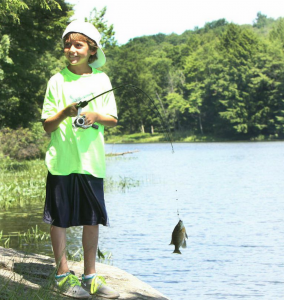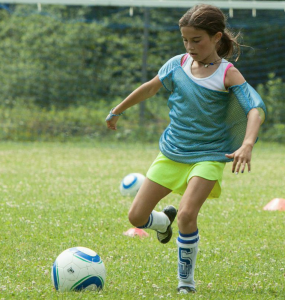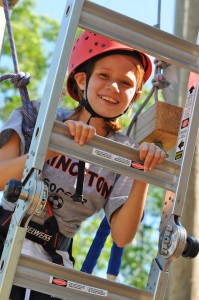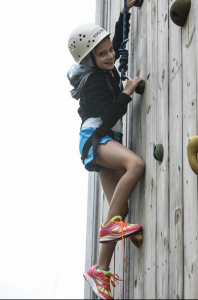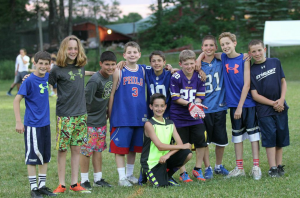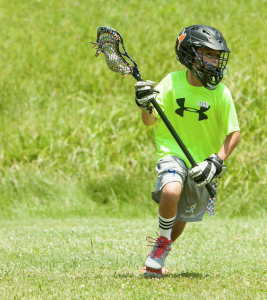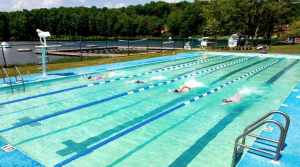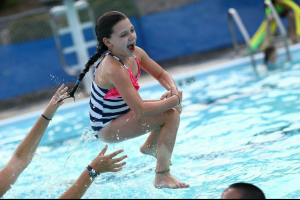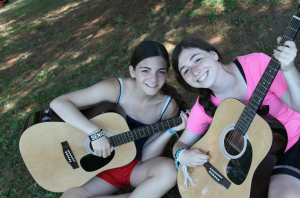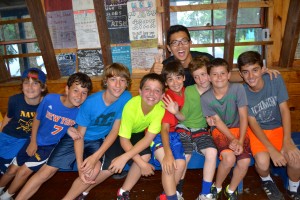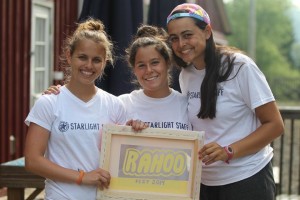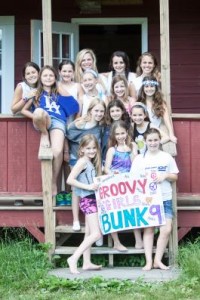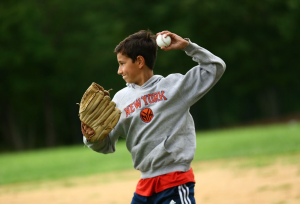 Whether your little camper is a marshmallow roasting, campfire-song-singing pro, or a novice to the summer camp world, your child eventually will want to make the jump from regular day camps to the highly anticipated sleep away camp. Sending your child off to overnight camp can be an emotional and anxious time for you and your child, so it is important to know what to expect and how to make the transition as smooth as possible.
Whether your little camper is a marshmallow roasting, campfire-song-singing pro, or a novice to the summer camp world, your child eventually will want to make the jump from regular day camps to the highly anticipated sleep away camp. Sending your child off to overnight camp can be an emotional and anxious time for you and your child, so it is important to know what to expect and how to make the transition as smooth as possible.
Before you help your child pack up and ship out, make sure they meet the age requirements set up by the camp you have chosen. The thought of sending your toddler away for a few nights may sound tempting, but most camps have a minimum age of 7 or 8. Check into this before you get your child excited about the idea of sleep away camp.
A good way to gauge how your child will do at a sleep away camp is to give them an opportunity to spend the night somewhere else. Try a few nights at a grandparent’s house, or organize a sleepover at one of their friends’ houses. If your child enjoys these sleepover experiences, chances are they will adjust well to an overnight camp. They should be comfortable sleeping in an unfamiliar place. Experiment with your child’s comfort level close to your home before sending them to camp for the first time.
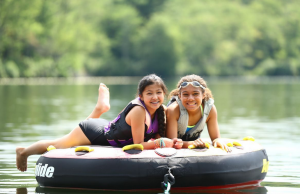 There are thousands of camps to pick from, so it is important to make sure you find a camp that is the right fit for your child. Some camps run for 3 or 4 weeks, while others run for seven. Some camps specialize in different sports, interests, and preforming arts. Make a list of the things that are important to you in a camp and narrow down your choices based on these requirements. Recommendations from other parents are always a great place to start when looking for a camp for your child. When you find the camp that you feel meets all of your requirements, schedule a meeting with the camp director to get to know him/her better and share your concerns and questions. Take a look around the camp’s website if you don’t live close enough to schedule a visit, and request a DVD as well.
There are thousands of camps to pick from, so it is important to make sure you find a camp that is the right fit for your child. Some camps run for 3 or 4 weeks, while others run for seven. Some camps specialize in different sports, interests, and preforming arts. Make a list of the things that are important to you in a camp and narrow down your choices based on these requirements. Recommendations from other parents are always a great place to start when looking for a camp for your child. When you find the camp that you feel meets all of your requirements, schedule a meeting with the camp director to get to know him/her better and share your concerns and questions. Take a look around the camp’s website if you don’t live close enough to schedule a visit, and request a DVD as well.
Let your child get involved in the packing and preparation for camp. Purchasing something new, such as a shower caddy or new backpack, may help get kids excited about going away. If they’ve never shared a room before, go over how to be a good “bunk mate” by showing your child how to keep their toiletries and personal belongings organized and in their own space. Remind them to keep dirty laundry separate so it can be washed, and to hang up their wet swimsuit to dry instead of throwing it in a sopping pile in the corner.
When the first day of camp arrives, do your best to hold it together until the buses or plane departs. If they see that you’re emotional or nervous, they’ll pick up on that and it’ll create a tense and uncomfortable environment right off the bat. Hug them good bye, let them see how excited you are for them and list a few of the things they’ll get to do that you just KNOW they are going to love. When you’re saying goodbye, it can feel natural to say things like “if you don’t like it, we will come get you” especially if you’re consoling an upset child. But telling them you are “just a phone call away if you need them” can be detrimental to their adjustment. If they know they can call you to “rescue” them, they’ll be less likely to take the necessary steps to adjust to camp life on their own.
Equip them with plenty of stationary and stamps and encourage them to write to you when they have some down time. Mail a letter to them before they leave so it is there when they arrive at camp, or tuck one away in their luggage. Avoid phrases like “We miss you so much” or “It’s so quiet/lonely/boring here without you” when you write to them. Don’t make them feel guilty or that they have to worry about your well-being while they’re away. Focus on the positive and how happy you are that they’re there.
Sending your child to their first overnight is a bittersweet milestone for any parent. You may find yourself in awe at how your newborn is walking away from you, about to spend days or weeks in a totally new environment, without you. You may feel a sense of pride that you’ve raised an independent and confident little human, who is going to grow, meet new friends and try new things. You may feel a little bit of excitement at the thought of a few kid-free weeks at home, and may have already started planning your exciting “things-to-do-without-kids” list, like schedule a massage for the middle of the afternoon, or make dinner plans with your spouse or group of friends. This is a fun and exiting time for your child, and should be for you too. Let yourself worry a little, but don’t obsess about it. Try to relax and enjoy this time to yourself.
Prepare yourself that when your camper returns home, it may take them a little while to adjust to life back on the home front. Kids may need a friendly reminder of the rules, schedules and expectations at home and may take a day or two to get back into the swing of things.
Making the jump from day camp to overnight camp can be nerve-wracking, exciting and emotional for both you and your little camper. You both will make it through, and before you know it you will be stepping on Legos again, watching cartoons, waking up early, driving them to and fro, listening to their melt downs and watching their favorite movie over and over…. and over.
Until then, rest assured that your child is going to be fine. And he or she will be more than fine. They’ll come back to you a little older, a little wiser, and with plenty of stories and experiences to share.

 570-798-9831
570-798-9831
